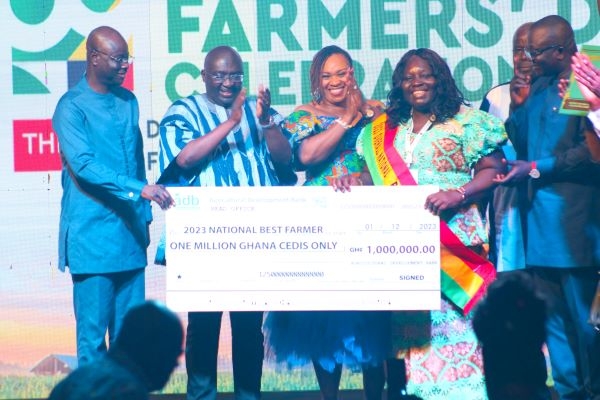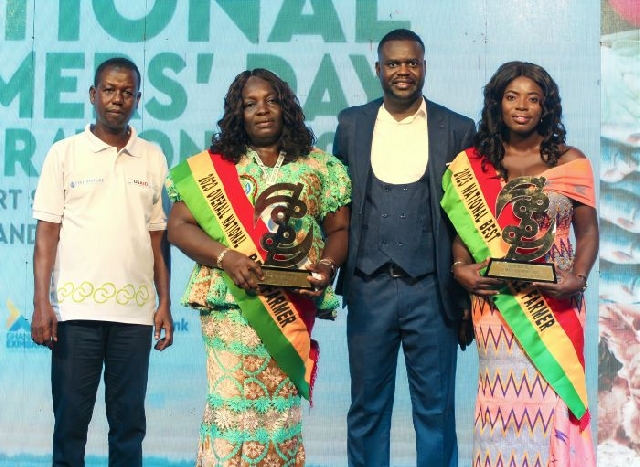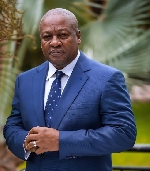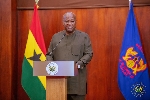USAID's 'Feed the Future Ghana Policy Link' initiative to support national best female farmers
 This initiative extends support to 18 other female award winners at national, regional, and district levels
This initiative extends support to 18 other female award winners at national, regional, and district levels
The United States Agency for International Development (USAID), through the Feed the Future (FTF) Ghana Policy LINK Activity, is set to provide year-long assistance to Charity Akortia and Edith Akosah Wheatland, who were honoured as the 2023 National Best Farmer and National Best Female Farmer, respectively.
This initiative extends support to 18 other female award winners at national, regional, and district levels.
Building on the success of the first cohort in 2022, this programme aims to empower outstanding women in agriculture with leadership, advocacy, and agribusiness development training, along with a study tour.
The training aligns with this year's theme, ‘Delivering Smart Solutions for Sustainable Food Security and Resilience,’ tailored to the specific capacity needs of the awardees.

The first cohort experienced a 5-day leadership, advocacy, and agribusiness training, facilitated by USAID/Ghana through the FTF Ghana Policy LINK Activity, in collaboration with the Ministry of Food and Agriculture (MoFA), FTF Ghana Mobilising Finance in Agriculture Activity (MFA), and Absa Bank Ghana Limited.
Policy LINK also ensured their participation in key agriculture stakeholder engagements throughout 2023, providing mentorship and technical support.
The women from the initial cohort demonstrated notable determination in implementing lessons learned, enhancing their agribusinesses, and actively engaging in the agriculture policy space.
Their efforts led to the formation of the Ghana Association of Female Agricultural & Fish Farming Award Winners (GAFAFAW), showcasing their commitment to advancing women's involvement in Ghana's agricultural policy processes.
The FTF Ghana Policy LINK Activity plans to continue supporting selected women awardees over the next three years, aiming to foster greater inclusion and active participation in the agriculture policy space.
The initiative seeks to empower these women leaders to contribute significantly to the growth and food security of the agricultural sector while advocating for the involvement of various vulnerable groups, including youth and persons with disabilities.
Source: classfmonline.com
Trending News

Multi-million dollar Aayalolo BRT faces criticism over overloading and deteriorating service quality
15:20
Asset declaration: Mahama sanctions defaulting appointees; seizes 3 months’ salary to support Ghana Medical Trust Fund
02:51
Paul Afotey Quaye receives unanimous endorsement as Krowor MCE amidst some mixed reactions
15:44
A new dawn: Joyce Bawah Mogtari hails President Mahama’s bold start
17:10
Mahama issues stern ultimatum to appointees over asset declaration
02:45
CDS William Agyapong promoted to Lieutenant General
17:26
From ‘trotro’ to brand new car: Seidu Agongo’s generosity transforms Black Stars goalkeeper's journey
16:43
Attorney-General vows to enforce Code of Conduct, pursue sanctions against corrupt officials
02:40
Former NSB chief remanded by High Court over witness interference allegation
16:43
Radio host issues clarification over GIHOC CEO allegations aired on Accra 100.5 FM
13:29



